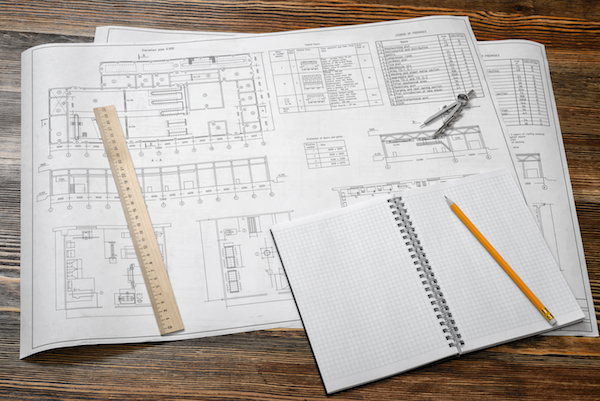Managing your own home improvement project can be overwhelming and the added stress of obtaining permits does not make it any easier. Many homeowners are tempted to skip the permit process altogether because they don’t think their project requires one, or simply because they don’t want to deal with the hassle of obtaining one. Disregarding permits can lead to added costs, long delays, or a complete demolition of your new project. Obtaining the correct permits for your home renovation projects will ensure that you are building up to code, ultimately keeping your home and family safe.
What is a Permit?
A permit is an official approval for your home renovation project according to the building code guidelines. With an approved permit, your contractor is allowed to begin the renovation following the approved plans. Permit requirements are constantly updated to ensure the safest structures and equipment is used for your project. Permits ensure that your project is abiding by the health and safety requirements, including fire protection in order to protect you and future homeowners. A home inspector can help you determine if your home is up to code.
How Does a Permit Work?

Before beginning a home improvement project, big or small, to ensure work is completed safely, on budget, and within the timeframe, it is essential to have a plan. Depending on if you are completing the work or are hiring a professional, understanding all the requirements of your project in detail will help you figure out if you need a permit or not.
Typically, if you hire a professional to complete your home improvement project, they will handle all the necessary steps to obtaining the proper building permits. They will add a cost to the final invoice for this service as permits require a fee. Communication between yourself and the contractor is crucial in this phase of your renovation project. Clearly agreeing on who is obtaining the permit will prevent any confusion which could lead to long delays and possible cancellation of your project. If you are completing the renovation yourself, it is a good idea to check with your local building office to see if your specific project requires a permit.
Once the local building office has received the details of your project, they will be able to let you know if it requires a permit or not. If it does, then they will provide the proper permit applications required for your project. In some cases, a project may require multiple permits. Once you complete the application and pay the associated fees, it will be reviewed and you will be granted your permit and/or permits. Small projects can take up to a couple of days to review, while larger projects may take up to several weeks. Planning ahead will help you avoid any delays in your project.
You will be required to have your permit posted on the worksite. Periodically throughout your project, you will be required to have an inspector stop by to check on the progress of the work to make sure it is sticking to the plan and is up to code. Once the work is finished and it passes a final inspection, you no longer need to post the permit.
When Do You Need a Building Permit?

While not all projects require a permit, it is important to double check to see if your project does or not as permit regulations and building codes vary nationwide. Generally, you need a permit if you plan on changing the structure or systems that already exist in your home. This includes additions, reconfiguring spaces, moving/removing walls, adding windows or doors, installing fireplaces, updating electrical, and updating plumbing, just to name a few.
Obtaining your building permits not only ensures the safety of the work done, but in the unfortunate event of an accident caused by work done in your home, if it has not been inspected and no permit was obtained, you may not be eligible to receive assistance from your insurance company in paying for the damage.
Permits are there to ensure that you are receiving safe work to protect you, and your home today and in the future. Permits are constantly being updated as our knowledge and technology of safety, structures, and equipment advances. Consulting a contractor for your next home improvement project can provide you with the knowledge and expertise to allow your project to be completed safely and seamlessly.
